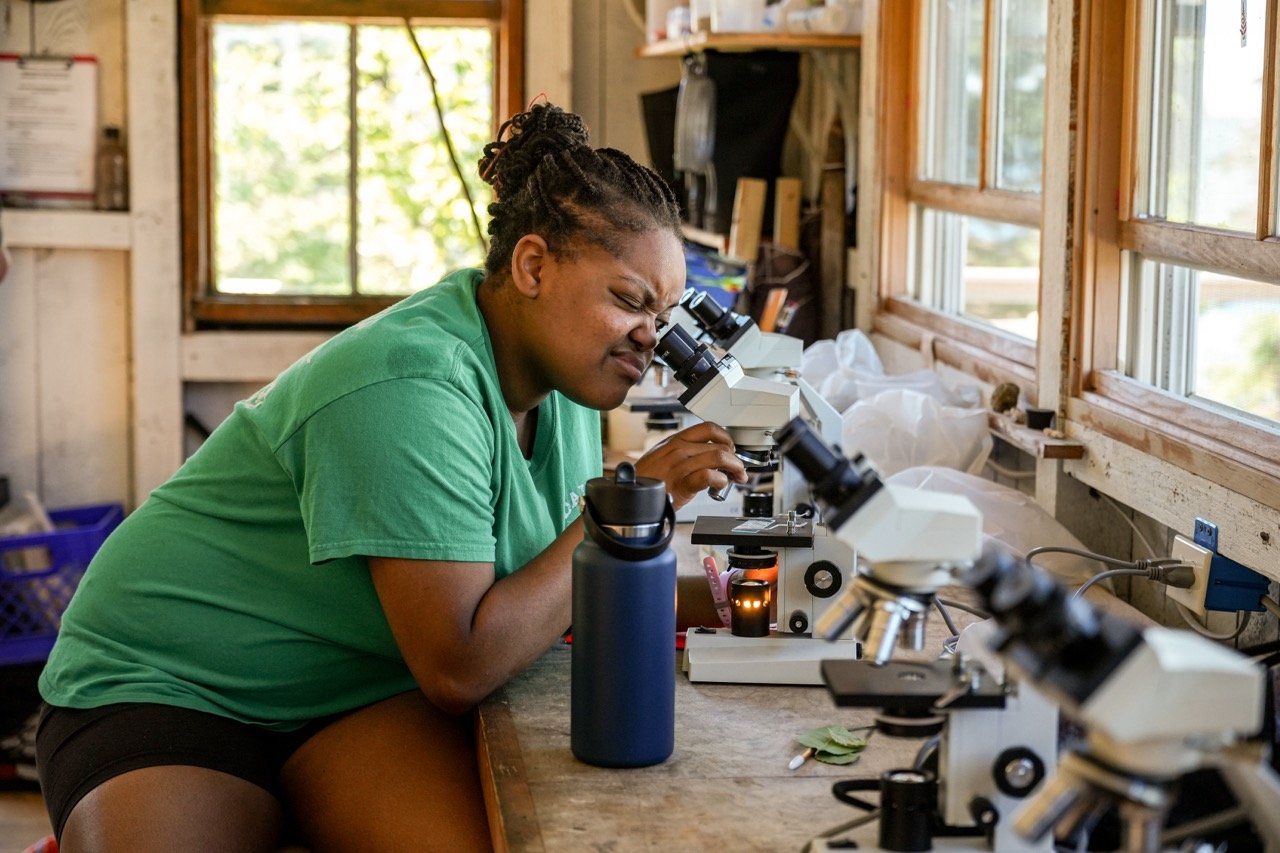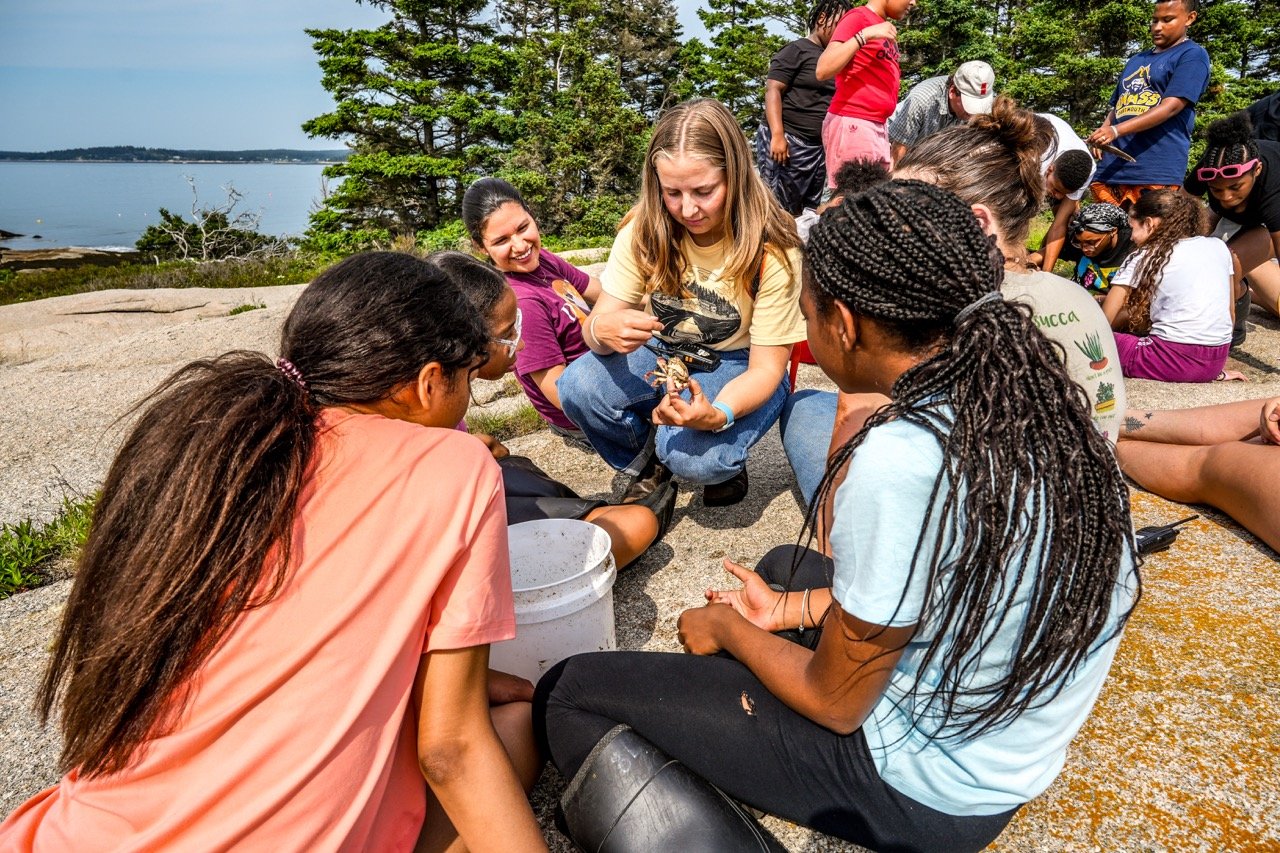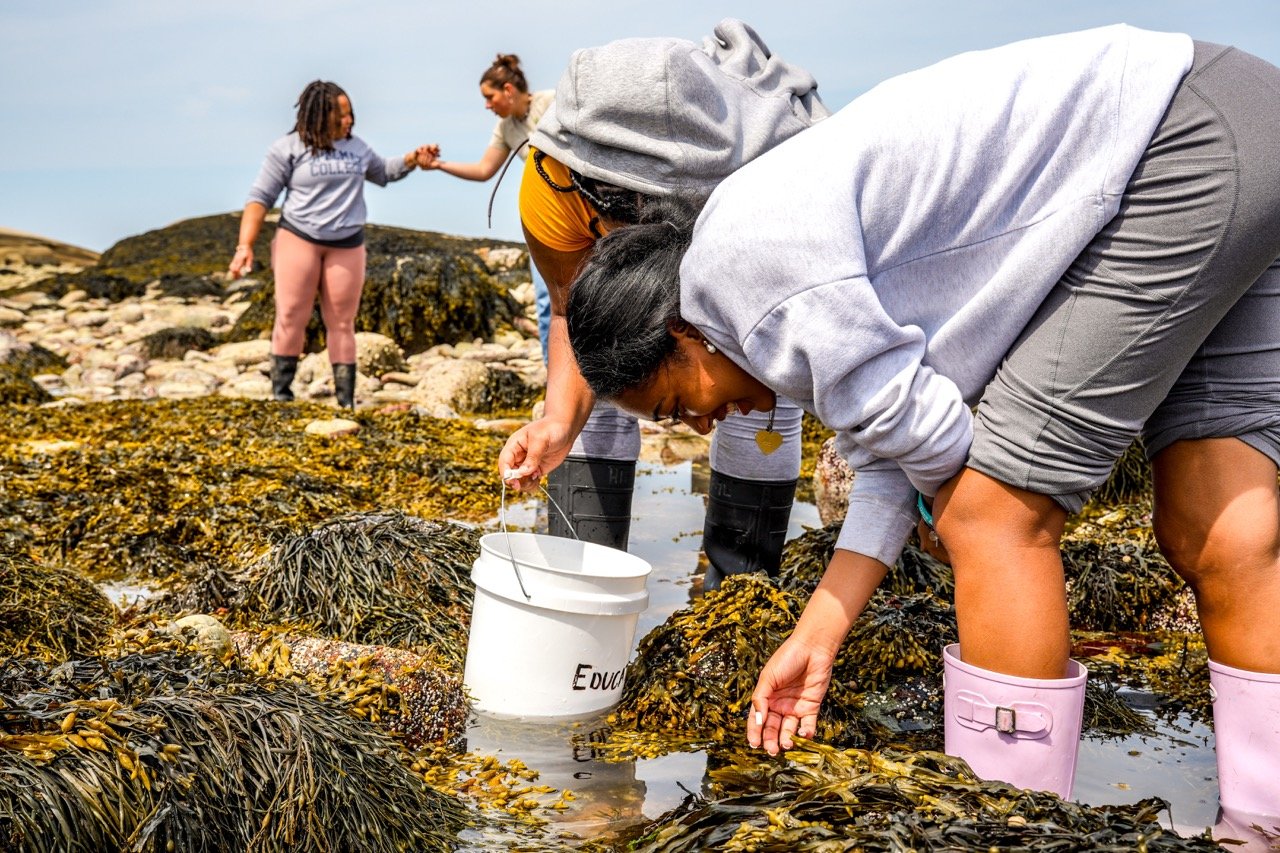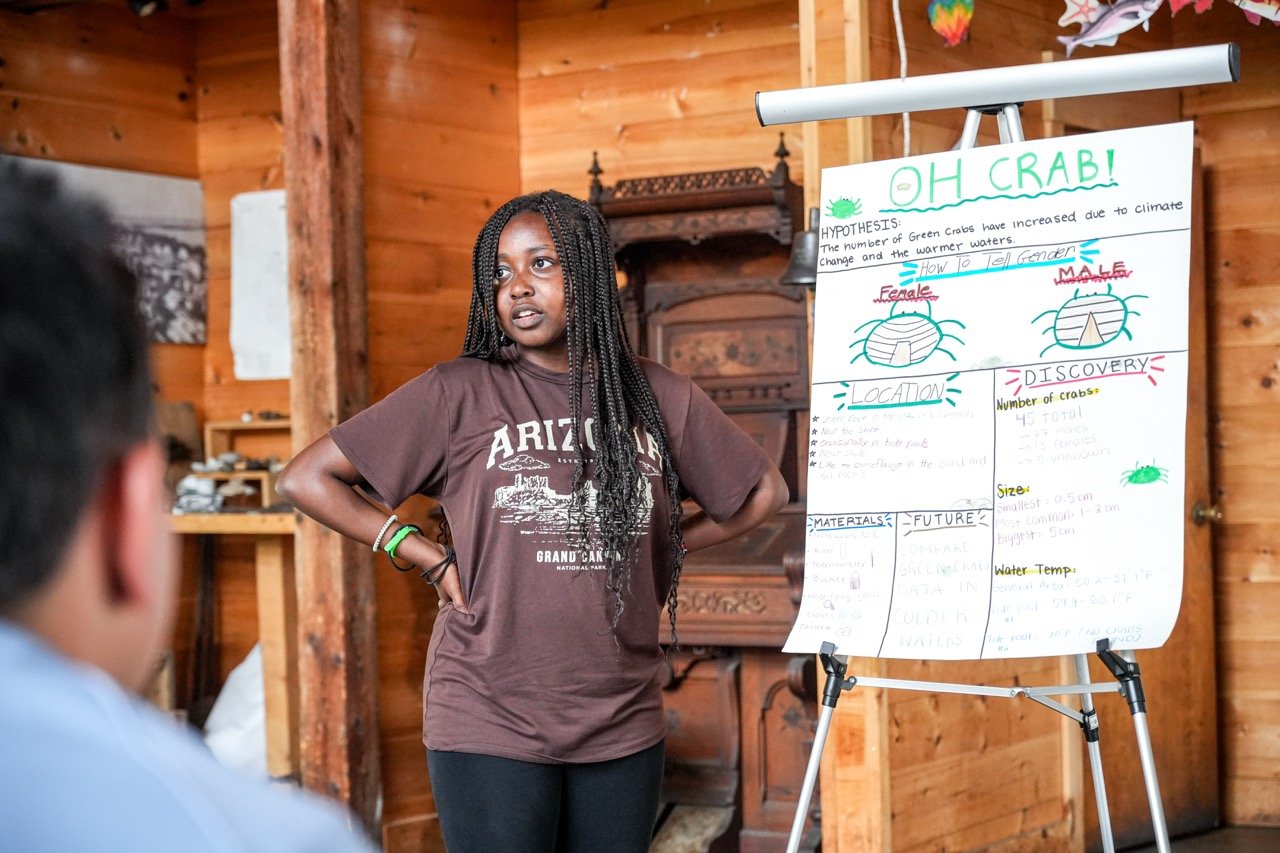High School Marine Ecology
Hurricane Island programs embed students in experiences that leverage the art and practices of science as tools for leadership and social change. Through personal and group explorations, students explore their own strengths as transformative leaders who can address the sustainability challenges facing our world today.
At-A-Glance
Dates: June 29th - July 4th, 2025
Ages: Rising 9th - 12th graders
Cost: $1750 - All inclusive of transportation between Rockland and Hurricane Island, housing, meals, snacks, and all programming
The High School Summer Science programs are designed for rising 9th-12th graders with an interest in environmental science who would like to gain skills in scientific research and leadership. High School Marine Ecology focuses on intertidal habitats and the recreational and commercial uses of marine resources, including lobstering and the growing aquaculture industry. Throughout the program, students will explore various topics such as the endangered right whale, seaweed distribution, and invasive crab species, thinking critically about the scientific methods they use and learning how to identify bias in research. Students will spend most of their time in the lab and out in the field gaining hands-on experience in data collection and basic analysis.
The program will culminate in student presentations on the mainland for friends, family, and the general public, providing students with the opportunity to share what they have learned throughout the program and practice science communication skills.
This educational science program is interspersed with active team building initiatives, rock climbing, and free time to explore the island, swim off the dock, or relax in the sun.
Spending the week off-grid, students will become familiar with sustainable practices on the island such as conserving water and minimizing food waste. Students should be prepared to engage in community living, participate in communal chores and responsibilities, and disconnect from personal technology. Through living and learning together in this dynamic environment, students will begin to explore their own strengths as leaders and how they can leverage science as a tool for social change. Students can expect to leave the island with strengthened connection to the natural world and greater confidence to continue practicing leadership in their home communities.
High School Marine Ecology activities may include:
Using the scientific process to come up with and answer their own questions
Working with the research team to get hands-on with Hurricane’s aquaculture projects
Exploring the intertidal zone using field research methods to collect data
Investigating marine debris from microplastics to large scale shoreline cleanups
Using various sampling methods to collect oceanographic data both onshore and on the water
Hauling lobster traps and learning about the biggest economic industry in Maine
“I didn’t believe before coming to Hurricane that I had the potential to design and carry out a scientific experiment from my own experimental question. However, after exploring the intertidal zone and conducting research, I learned that I did have the potential, which inspires confidence.”

























